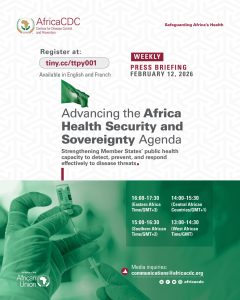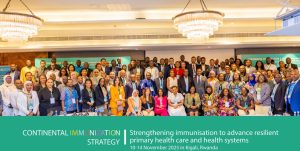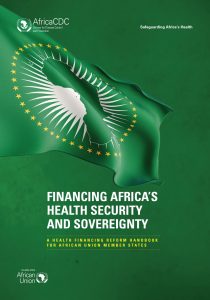The Africa Centres for Disease Control and Prevention (Africa CDC) and the Japan International Cooperation Agency (JICA) in mid-December signed an agreement for collaboration in various public health aspects to combat infectious diseases threat in Africa. The letter of intent was signed during a session on health systems resilience against public health emergencies and strengthening regional laboratory networks in Africa that took place on 15th December, 2017 at the sidelines of the Universal Health Coverage Forum in Tokyo, Japan.
‘Strengthening health systems and achieving the universal health coverage agenda is predicated on creating efficiencies in existing public health assets. The best way to prepare for unknown disease threats is to strengthen capacity to deal with the known disease threats. As such, resilient public health systems are critical to mount timely and effective responses across Africa. Partnership with bilateral and multilateral institutions is critical to achieve Africa CDC’s mission’ said Dr. John Nkengasong, the Director of the Africa CDC.
The Africa CDC is already partnering with the United States CDC, China CDC, the Bill Gates & Melinda Foundation, and World Health Organisation Regional Office for Africa to implement its strategic goals. The priorities for the first 5 years include strengthening surveillance and disease intelligence; innovative information systems; laboratory systems and networks; emergency preparedness and response; and public health institutes and research across the continent.
‘Building health systems resilience against public health emergencies in Africa will contribute significantly to human and global health security. We are committed to work with the Africa CDC, its Regional Collaborating Centres and networks to promote partnership and collaboration among African countries to address emerging and endemic diseases and public health emergencies’ said Dr. Takao Toda, the Vice President for Human Security and Global Health at JICA.
Japan will support Africa’s ongoing efforts in public health emergency preparedness and response through strengthened laboratory capacity, regional networks, field epidemiological and training programmes, establishment of early warning systems and response surveillance platforms, implementing the core capacities of International Health Regulations in countries, hazard mapping and risk assessments, health systems strengthening and collaborative research and publications.






